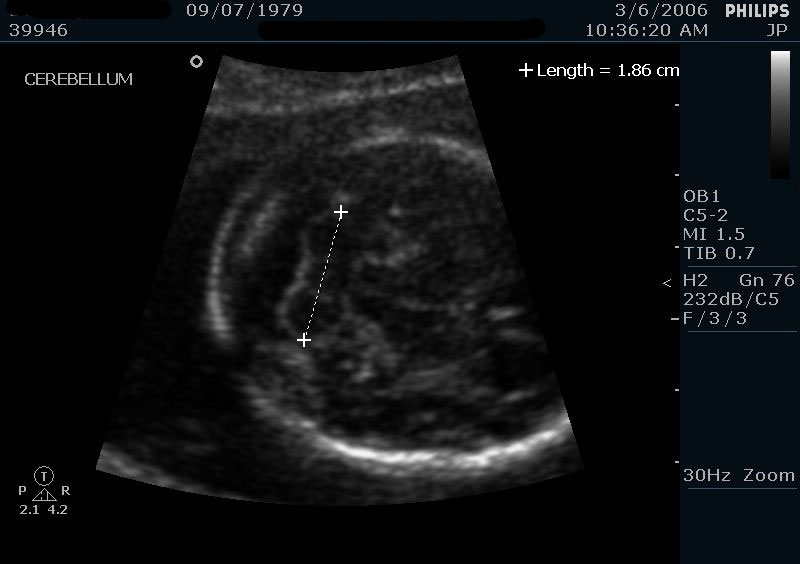Can Ultrasound Tell When You Got Pregnant?
An ultrasound can be an effective way of narrowing down gestation—how long you’ve been pregnant.
The sonographer is able to measure different parts of the fetus’ body, giving a good idea based on size how far along the pregnancy is. In early pregnancy, crown-rump length is measured. Later on, measurements may be taken of abdominal circumference (abbreviated AC), femur length (FL), head circumference (HC) and biparietal diameter (BPD). The last two are pretty similar; HC is the distance around the baby’s skull rather than the entire head.
 Above: Measurement of cerebellum during ultrasound
Above: Measurement of cerebellum during ultrasound
If your obstetrician gives you a probable conception date at your first ultrasound, consider it to be likely accurate within a week or so. But the farther along in your pregnancy such an assessment is made, the less accurate it may be. Be wary if a doctor, midwife or sonographer wants to “move up†your due date based on a later-in-pregnancy ultrasound. Also, experts say that an ultrasound is not a reliable way to determine paternity based on date of conception.
As for the frequency and number of ultrasounds, the American Pregnancy Association has this to say: “Because ultrasound should only be used when medically indicated, many healthy pregnancies will not require ultrasound.”